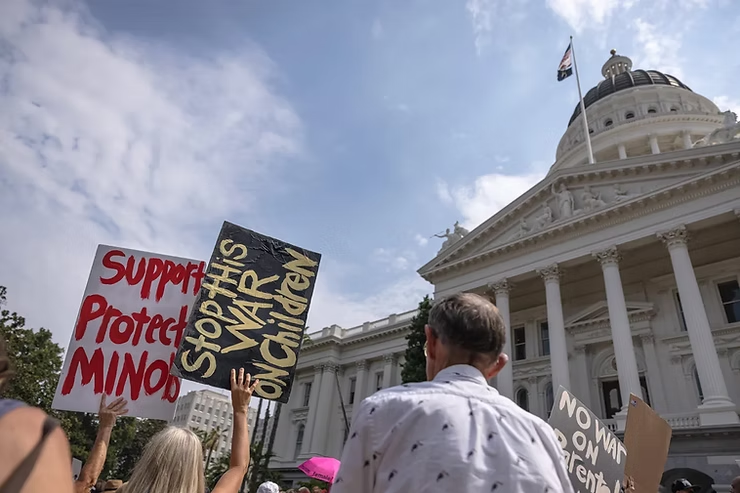A proposed law expanding caregiver affidavits and short-term joint guardianships raises concerns over parental authority, immigration enforcement, and child safety.
California lawmakers are advancing Assembly Bill 495, a proposal supporters call the Family Preparedness Plan Act of 2025, but critics want it to strip away parental rights and leave children vulnerable to exploitation.
Introduced by Assemblymember Celeste Rodriguez (D-San Fernando) on February 10, AB 495 would overhaul how families prepare for sudden separation due to immigration detention, military deployment, hospitalization, or incarceration. The bill passed the Assembly on June 3 in a 62-7 vote, cleared the Senate Human Services Committee on July 7, and is scheduled for a Senate Appropriations hearing on August 18.
At the core of AB 495 are two provisions: expanding the caregiver authorization affidavit and creating a new “short-term joint guardianship.” Under current law, only relatives can sign an affidavit granting a caregiver the ability to enroll a child in school or consent to school-related medical treatment. AB 495 would broaden that authority to include “nonrelative extended family members,” while explicitly noting that a parent’s or court’s signature is not required.
The bill also introduces a joint guardianship model allowing parents to designate someone to temporarily assume responsibility during a triggering event, such as deportation or serious illness. The guardianship would automatically end when the parents’ circumstances stabilize.
Supporters, including the City of Los Angeles and children’s advocacy groups, argue the measure offers a lifeline for immigrant and mixed-status families. “This bill is not just about planning; it’s about creating a safety net,” Rodriguez said in a July 17 press release. “The state has a moral obligation to act.”
But parental rights advocates and conservatives have mobilized in opposition, citing the risks of bypassing existing safeguards. They argue that the bill grants significant authority to non-parents with little oversight.
Assemblymember Dianne Dixon (R-Newport Beach), who opposed AB 495 in both the Assembly Appropriations Committee and on the Assembly floor, issued a sharp warning.
“I have voted to oppose AB 495 both in the Assembly Appropriations Committee and on the assembly floor and will continue to oppose such legislation,” Dixon states. “I am deeply concerned with the intent and implications of AB 495. The bill fails to provide the necessary and crucial safeguards to protect children and aims to limit the ability of law enforcement to perform their duties.”
Legal experts at Home School Legal Defense Association (HSLDA) have also flagged constitutional concerns, arguing that AB 495 undermines the due-process rights to direct the upbringing of their children. Conservative watchdogs such as California Family Council point to language in the bill that allows affidavits to be executed without parental signatures, calling it “an invitation for abuse.”
AB 495 also requires schools and licensed childcare centers to distribute updated legal guidance issued by the Attorney General in January 2025. That guidance instructs schools not to voluntarily share information with immigration enforcement, a move conservatives say weakens law enforcement.
With the Senate hearing scheduled for August 18, the bill’s future remains uncertain.













Add Comment